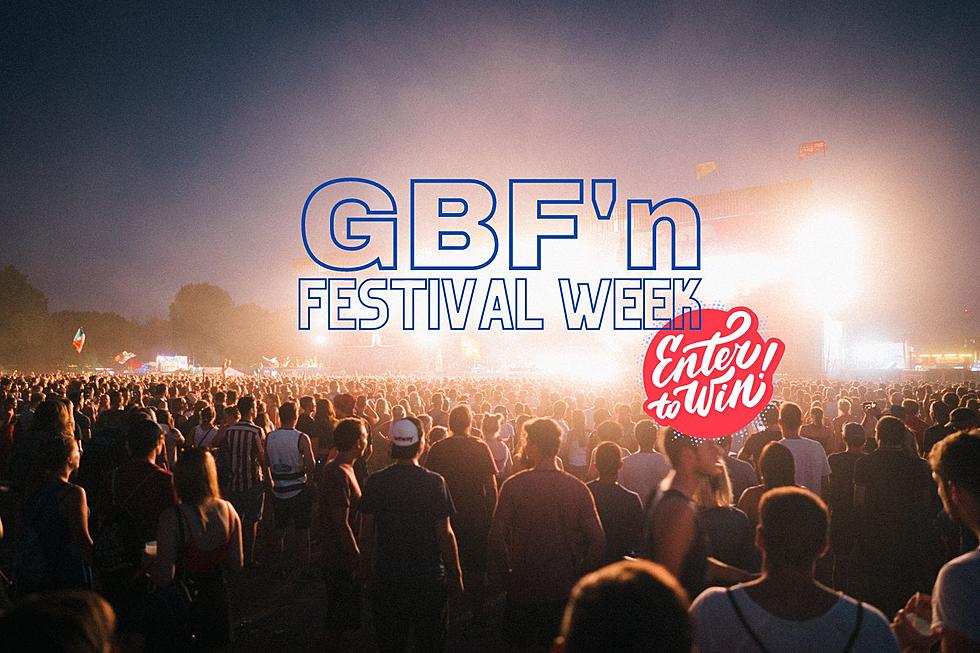
43 Years Ago: Black Sabbath Roar Back With ‘Heaven and Hell’
When Black Sabbath fired Ozzy Osbourne, the metal community mourned. Few, including the group’s label, could imagine the music pioneers continuing without their wild, charismatic lead singer. But continue they did, and it was Sharon Osbourne who helped them back on their feet. And on April 25, 1980, Black Sabbath returned with their classic Heaven and Hell album.
The initial plan was to work on a side project with Ronnie James Dio while Ozzy straightened out. Sharon Osbourne, who was then working for her manager / father Don Arden, suggested the guys work with the mysterious and vocally powerful singer for Rainbow to keep themselves busy. When it became clear, Ozzy wasn’t going to be able to stay in Sabbath in his current state, they asked Dio if he was interested in being the band’s new vocalist.
“We had him come over to our house in Beverly Hills and I played him a riff and he just started singing to it and we went, 'Bloody hell, this is fantastic!’” Iommi said in a 2006 interview for a story about Sabbath’s reunion with Dio. “We didn’t audition him, as such, we just started writing. It was a different way of working for me, which was very refreshing. Always, before with Ozzy, it was about riffs, and Ozzy would sometimes sing the riff. But with Ronnie, there were more chords than actual single note riffs.”
In addition to working well together musically, Dio and Iommi had a lot of common interests and got along from the start. “It was like we’d known each other for years,” Iommi said. “I was very impressed with him. He came in with a great sense of humor. He was obviously used to working with a lot of English people anyway, so he knew all the slang words. He fit in very well.”
Black Sabbath, "War Pigs" With Ronnie James Dio — Live (1980)
While the two main songwriters of the second generation of Black Sabbath were rebuilding the band’s shattered foundation, other forces, both inside and outside of the group were putting up obstacles that even Iommi’s dense, muscular rhythms couldn’t immediately penetrate. Drummer Bill Ward was in an alcoholic stupor most of the time and bassist Geezer Butler left a few days into the songwriting process to sort out some personal issues, forcing Iommi and Dio to hire a couple of fill-ins while they finished writing.
“Geezer was only there for a couple days after I arrived,” Dio recalled. “So Tony and I wrote everything. We went to Florida with another bass player to start recording. And in the middle of it, Geez called Tony and said, ‘I’d really like to come back. Is there any chance?’ I didn’t think it was working that well with the other bass player we hired, anyway. But I felt it was important that Geezer play with Tony. So it was a no-brainer. Geezer came down and that was another tribulation to have to deal with because he wasn’t exactly in the best headspace at the time.”
As songs like the pile driving “Neon Knights” and the epic, imagistic title track started coming together, Butler and Ward’s interest in the band was reignited and Black Sabbath began playing with an efficiency and vitality they hadn’t displayed since Sabotage, five years earlier. For the first time in years, Black Sabbath were the underdog and they were fighting against the system.
Black Sabbath, "Neon Knights" — Live (1980)
“We were writing out of sheer stubbornness, I think,” Iommi said. “Everybody was wondering what was gonna happen, and what it was going to be like and was it going to work. We just believed in what we were doing and carried on with it.”
Despite their enthusiasm for the songs they were writing, Black Sabbath's label was skeptical that anyone would be interested in Sabbath without Ozzy, and refused to pay for the recording. So the band funded the sessions themselves. With time burning holes in their pockets, Sabbath worked more quickly than they were used to, which meant less personal indulgences. “We couldn’t possibly operate at the level we were used to,” Iommi said. “We had to be focused and work quickly. Having said that, we had our days when we would dabble a bit. But we didn’t say, ‘Right, we’re going to do an album. Let’s do tons of drugs and drink.’”
Just because Black Sabbath didn’t party like coke fiends didn’t mean there weren’t some crazy moments while they worked on Heaven and Hell. When they finished a track, they’d take it to the local strip club and the DJ would play it while the girls danced. At one point, Iommi set Ward on fire as part of a prank they had pulled dozens of times, only this time the drummer was badly burned. And when Iommi found out Dio was afraid of snakes, the door was open for another practical joke.
“I found a dead rattlesnake, so I tied it on a bit of thin fishing line and put it in his car and tied the other end to his door handle, so when he opened the door, this snake jumped towards him,” recalled Iommi. “He wasn’t very happy about that. So, the next thing I knew, I went to the loo in my room, and there’s this snake down my toilet!”
Black Sabbath, "Heaven and Hell"
Black Sabbath recorded Heaven and Hell between October 1979 and January 1980 at Miami’s Criteria Studios, where the band had tracked Technical Ecstasy. They worked on the album with Martin Birch, who encouraged them to expand their sonic parameters and experiment with structures that suited Dio’s multi-octave voice.
The results were astonishing. “Children of the Sea” is majestic and textural, building from a Led Zeppelin-ish acoustic wash to a heavy, grindy chug, while the serpentine “Lady Evil” and “Wishing Well” revolve around blues metal rhythms, simple melodic choruses and Iommi’s psychedelic-tinged solos. Then there’s “Die Young,” which starts with an atmospheric Pink Floyd-ish intro before see-sawing between ripping metal and proggy parts laced with wispy keyboards and melancholy vocals.
“When we finished and played the songs for everybody it was like a real vindication,” Dio said. “Everyone who had originally doubted us was suddenly saying, ‘Alright, I’m hopping on this wagon.’”
When it was released, Heaven and Hell climbed to No. 28 on the Billboard album chart and eventually went platinum. More importantly, it proved that Black Sabbath didn’t need Ozzy to remain a visceral force. Even after Dio left in 1982, ending his first of three stints with Sabbath (the last under the name Heaven and Hell), the band worked with numerous other vocalists, including Ian Gillan, Tony Martin and Glenn Hughes before eventually getting back together with Osbourne.
When Dio wrote the lines, “There's danger and a promise to be told / You’ll never get old… So live for today, tomorrow never comes / Die young,” he was singing about the importance of living in the moment, without a clue in the world that his own days were numbered. Tragically, he died of stomach cancer in 2010, right in the midst of his critically acclaimed run as singer of the band known as Heaven and Hell that also featured Iommi, Butler and Vinny Appice.
Loudwire contributor Jon Wiederhorn is the author of Raising Hell: Backstage Tales From the Lives of Metal Legends, co-author of Louder Than Hell: The Definitive Oral History of Metal, as well as the co-author of Scott Ian’s autobiography, I’m the Man: The Story of That Guy From Anthrax, and Al Jourgensen’s autobiography, Ministry: The Lost Gospels According to Al Jourgensen and the Agnostic Front book My Riot! Grit, Guts and Glory.
Black Sabbath Albums Ranked
More From WGBF-FM







